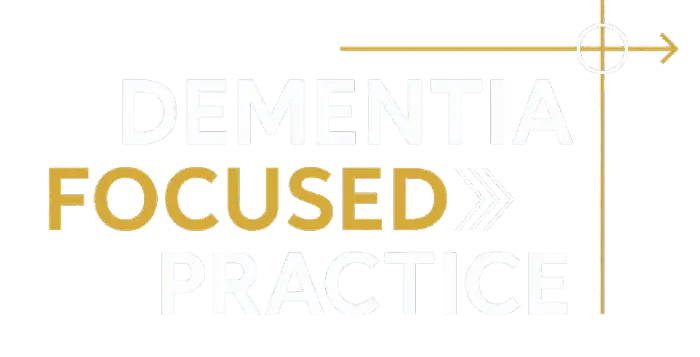Martinsville Alzheimer’s and Dementia Planning Lawyer

Families dealing with a serious diagnosis like dementia or Alzheimer’s face numerous medical and legal decisions that require careful planning. Often, the primary focus is on maintaining the quality of life for the affected family member, while upholding their wishes for medical and end-of-life care. A variety of approaches and resources are available to help families manage care and navigate these challenges, but determining the best solutions for your family can be difficult.
When you or a loved one has received a memory loss or cognitive decline diagnosis, the Van Dyck Law Group is available to offer support and assistance. Our Martinsville dementia planning experts will answer your questions and help you carry out the next steps. Because making plans sooner allows for a broader range of options, we encourage you to contact us as soon as possible to schedule a consultation.
How Does Martinsville Alzheimer’s and Dementia Planning Attorney Help with Elder Law Concerns?
Elder law is a focused area of legal practice dedicated to addressing the unique needs of older adults. It encompasses a wide range of services, including estate and life care planning, Medicaid eligibility strategies, and guidance on inheritance, tax, and probate matters.
For families coping with Alzheimer’s or any memory loss condition, proactive planning becomes essential to manage both the legal and medical complexities that come with the diagnosis. Comprehensive legal planning can also assist families in the following ways:
- Planning for advanced dementia care costs. In the later stages of the illness, patients often need round-the-clock assistance and supervision. As much as family members might want to provide this care at home, in many cases, it simply isn’t possible. Yet long-term care facilities are also prohibitively expensive for many families. Your Martinsville dementia planning attorney will explore your options, including potential Medicaid eligibility and steps you might take to protect assets while maintaining eligibility.
- Healthcare planning. You and your attorney should discuss the type of care you wish to receive and any treatments you don’t want. Then, your lawyer can create an advanced healthcare directive to communicate your wishes if you are really unable to do so.
- Establishing a power of attorney. At some point, you or your family member might become incapacitated or unable to make decisions. When this occurs, your care and financial matters can proceed smoothly if you have already selected someone to act as your power of attorney. This person will be empowered to make medical and/or financial and legal decisions for the grantor or principal, so you should choose carefully. One person may be in charge of both types of decisions, or you can select separate people for medical and financial decisions.
- Estate planning. We’ll help you create a will and take other steps to protect assets or reduce taxes for your estate’s beneficiaries. In some cases, setting up a trust or transferring assets now may be a good solution.
- Applying for a guardianship or conservatorship. Although we recommend preselecting someone to make medical decisions when you can’t, the reality is that some people don’t have the opportunity. This is especially common with early-onset dementia, which occurs when a person younger than 65 is affected. If you learn that your loved one has advanced memory loss and isn’t in any condition to make decisions, your lawyer can help you seek a guardianship or conservatorship so you can make choices on their behalf.
What Legal Rights Does a Person with Dementia Have?
A person with dementia has the same rights as anyone else, including the right to make their own decisions, as long as they have the legal capacity to do so.
What is legal capacity? This term means that the affected person can comprehend the situation and the ramifications of their choices and make an informed decision.
However, as memory loss progresses, a person may lose legal capacity or become incapacitated. At this point, they will no longer have the right to make their own medical or financial decisions.
This situation can be handled in two ways. If the affected person signed a power of attorney document or a healthcare proxy document while still having legal capacity, the person or people named in those documents (called agents) will make their medical decisions. An advance healthcare directive guides the healthcare proxy or medical power of attorney, so they can be confident they’re following the incapacitated person’s wishes.
The course of an illness like dementia isn’t always predictable. If you or a family member has recently been diagnosed with memory loss, we encourage you to speak with a Martinsville Alzheimer’s planning attorney immediately. We’ll help you create the necessary documents to designate a power of attorney and express your wishes for future care and treatment.
How a Martinsville Alzheimer’s Planning Lawyer Helps with Medicaid Eligibility
The costs of long-term care for a person with dementia can be unaffordable for many New Jersey families. In general, there are several options:
- In-home care is considered inexpensive and appropriate for the early stages of the illness.
- Assisted living is frequently the next step after in-home care, or in any situation where the person with dementia can no longer live alone safely.
- Memory care, necessary for patients with dementia, is usually delivered in an assisted living or nursing home facility, and is more costly than standard assisted living care.
- Nursing home care provides the highest level of assistance and care, and may become necessary in the later stages of the disease.
We encourage you and your family to research and compare all these options to determine what you can afford. However, the reality is that even the most cost-effective options can cost thousands of dollars a month and may be out of reach for many families.
How can you address the needs of a family member with dementia if these expenses aren’t in the budget? Your Martinsville dementia planning lawyer will examine your financial situation and recommend options. These may include Medicaid, Medicare, Social Security Disability Insurance (SSDI), Supplemental Security Income (SSI), and other related programs.
However, you or your family member will only be eligible for these programs if you meet certain requirements. Medicaid and SSI are only available to people with low levels of income and assets, and many applicants are rejected on these grounds.
If you believe Medicaid is your only option to pay for long-term care, a dementia planning attorney can advise you on how to meet eligibility requirements. Depending on the situation, you may be allowed to move assets into a trust, spend down assets, or transfer them. You mustn’t dispose of any assets without expert legal advice, as moving assets in the wrong way can result in Medicaid penalties.
Martinsville Alzheimer’s and Dementia Planning FAQ
What if You Have Been Denied Medicaid?
Clients often contact us after their Medicaid application has been denied. We understand how frustrating a Medicaid denial can be, and we’ll do everything we can to help. Our legal planning experts will review your financial situation and the reasons for your denied Medicaid and explain the options to meet eligibility requirements in the future. In some cases, we may also identify paperwork errors that may have affected your application.
What if an Incapacitated Person Doesn’t Have a Power of Attorney or Healthcare Proxy?
When someone becomes incapacitated before they can sign these legal documents, the state will appoint another person to act as guardian or conservator. Often, this is a family member or close friend of the affected person. However, in situations where this is not an option, a professional can be chosen to act as guardian or conservator.
If your relative is incapacitated, and you want to make decisions about their care, a Martinsville Alzheimer’s planning lawyer can assist you. Having a legal representative will guide you through the steps in seeking a guardianship or conservatorship. We can also help you explore options for hiring a professional if you and other family members are not able to serve in this role.
Can a Power of Attorney or Healthcare Proxy Override the Principal or Grantor?
The principal, also known as the grantor, is the person who signs the power of attorney document, thereby granting decision-making authority to an agent. This principal retains the right to make their own decisions so long as they have legal capacity. Only when the principal becomes incapacitated can the agent take over making decisions on their behalf.
Looking for a Martinsville Alzheimer’s Planning Lawyer? We got you!
Navigating the challenges of legal planning after a memory loss diagnosis can be confusing, but Van Dyck Law Group is here to provide the support you need. Our skilled Martinsville Alzheimer’s planning attorneys can work with you to review your options, answer your questions, and prepare the legal documentation necessary to reflect your intentions.
Additionally, we’ll create an action plan to assist you in preparing for the future and ensure your needs are met. We understand the emotional and logistical difficulties that accompany such a diagnosis and are committed to guiding you every step of the way. Please contact us today at (609) 293-2621.


